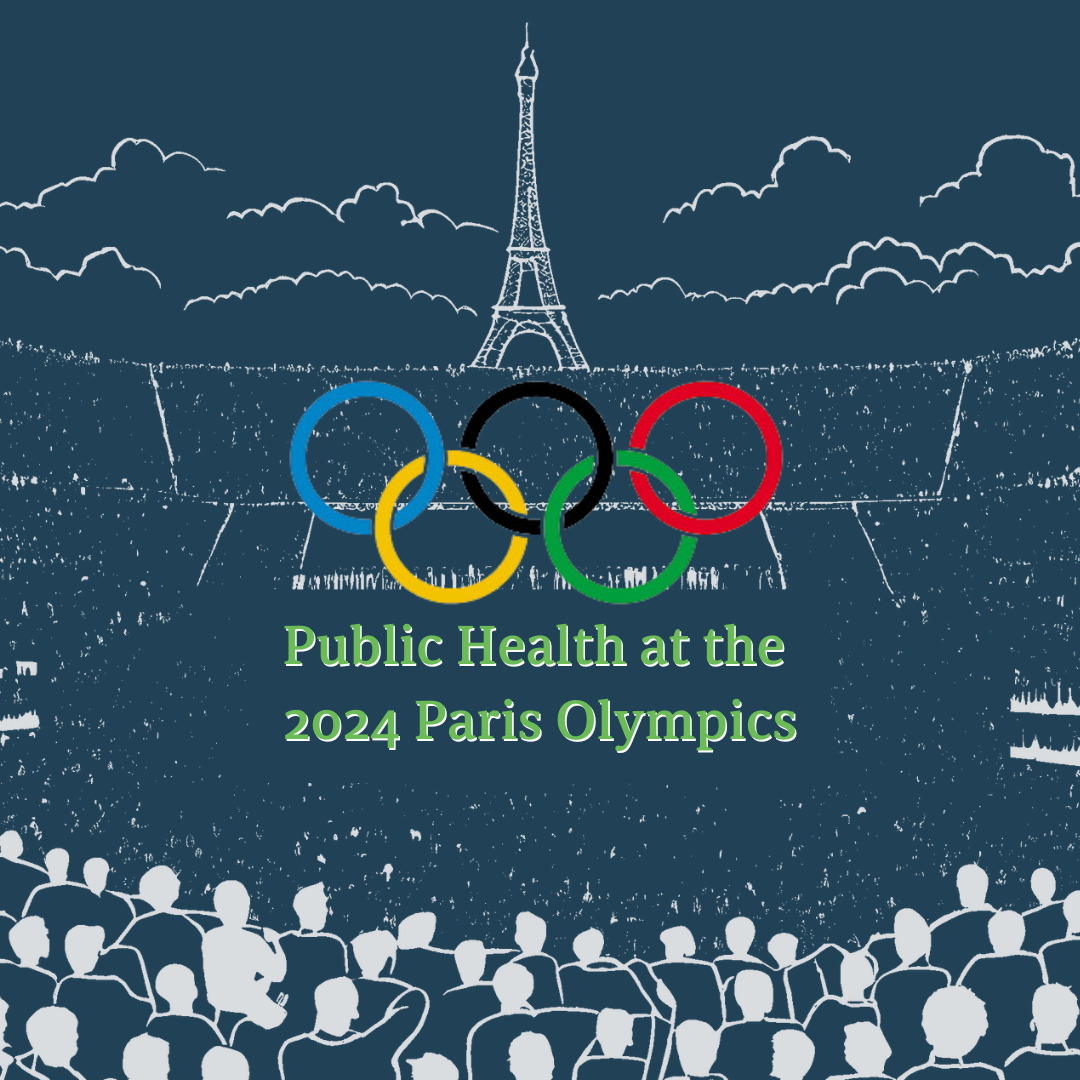Public Health at the Paris Olympics
The 2024 Paris Olympics faces an unexpected challenge: a global uptick in vaccine-preventable diseases that impact athletes, organizers, and spectators alike. But preventative measures are underway to safeguard global health.

The Olympic Games, an international celebration of human health and unity, have always been a beacon of hope and inspiration. However, the 2024 Olympics, held in Paris, faces an unexpected challenge: a noticeable uptick in vaccine-preventable diseases that impact athletes, organizers, and spectators alike. In an increasingly globalized world where travel, trade, and international events are more common than ever before, high vaccination coverage is a precursor to safeguarding public health. Falling vaccination rates and surges in diseases across the globe have inevitably influenced the Games and carry broader implications for global health.
Global Surges in Vaccine-Preventable Diseases
In recent years, we have seen a disturbing trend: a rise in vaccine-preventable diseases such as measles, dengue, and COVID-19. This increase has been attributed to various factors, including vaccine hesitancy, misinformation, and uneven vaccination coverage.
For example, following disruptions in routine immunization during the COVID-19 pandemic, childhood vaccination rates for measles dropped significantly. Now, in many countries—including France—measles vaccine coverage is less than 95%, the amount needed for population immunity. Because of this, France saw a significant uptick in measles cases last year. Measles is on the rise throughout Europe, which has experienced a 30-fold increase in cases in 2024.
Dengue, a lesser-known disease transmitted by mosquitos, poses a threat this year as well. In 2024, France alone has had over 2,000 cases, a drastic increase compared to the mere dozens at the same time last year. Despite the relatively limited number of dengue cases in France, preventative measures still must be taken to prevent the global spread of the disease.
While both diseases are preventable by vaccines, low coverage rates and an increased risk of imported cases are both public health concerns during the 2024 Olympic Games and beyond. The impact of these diseases extends past individual health, affecting communities and public events on a larger scale.
The Olympics: A Global Gathering
The Olympics are one of the largest gatherings of people from around the world; this year, France is welcoming over 15 million visitors to the country. With thousands of athletes, officials, and spectators converging in one place, the Games are a prime environment for the spread of infectious diseases. As Paris prepared for the influx of visitors, authorities planned on methods of limiting the spread of disease in what could be a potential ‘superspreader’ event.
To address these challenges, the International Olympic Committee (IOC) and local health authorities have implemented stringent health protocols, following the guidelines outlined in the public health “playbook” after the 2020 Tokyo Olympics. These included enhanced vaccination requirements, frequent health screenings, and emergency response plans to manage any outbreaks swiftly.

How the Pandemic Shaped Health Protocols
The Tokyo Olympics—originally scheduled for 2020 but postponed to 2021 due to COVID-19—became an impromptu “testing ground” for a range of health and safety measures designed to mitigate the spread of COVID-19. These measures were further refined at the Beijing 2022 Games, where the public health protocols set in place for the Games created new “playbooks” for health measures for future events.
For Paris 2024, organizers have refined the most recent “playbook” of protocols and continue to incorporate more advanced health technologies. Digital health passports and real-time health monitoring systems are being used to ensure that athletes, staff, and visitors are in good health to facilitate a quick response to any emerging issues. Moreover, there is a renewed emphasis on the effectiveness of basic hygiene as well we ongoing, in-depth disease surveillance, both precedents set during COVID-19. This proactive approach aims to maintain a safer environment while minimizing disruptions to the event.
The Role of Vaccination in Outbreak Prevention
In tandem with all the organizational public health measures in place for the Olympics, the current circumstances highlight the critical role of vaccinations in safeguarding public health.
The Tokyo Games were the first ever instance of the Olympics being postponed because of a public health emergency, when high levels of disease transmission and hospitalizations before the rollout of vaccines against COVID-19 made hosting the event unfeasible. The Tokyo Games could only be safely hosted in the following year with all attendees vaccinated against COVID-19.

Now, we are seeing history repeat itself with the immediate consequence of falling vaccine coverage for diseases like measles; in the U.S. alone, measles cases tripled between 2022 and 2023—a surge tied directly to lower vaccination rates. Because of the worldwide setback in measles vaccine coverage, the disease is once again a point of concern and a risk factor in mass gatherings like the Olympics.
There are, however, steps being taken to ensure that the world understands the importance of vaccination. Since the onset of the pandemic, educational campaigns have been launched in conjunction with the Games to raise awareness about the importance of vaccines. These efforts aim to combat vaccine misinformation and encourage both athletes and the general public to stay up to date with their vaccinations.
The spikes in cases of vaccine-preventable diseases have underscored the need for robust vaccination programs and public health initiatives to maintain high immunization rates, prevent future outbreaks, and reduce any potential health risks posed by major international gatherings. Now more than ever, strong vaccine coverage rates are a prerequisite to safely host major international events.
Broader Implications
As the world becomes increasingly more globalized, diseases do the same. The 2024 Olympics are a reminder of the interconnected nature of global health. Infectious diseases know no borders, and a resurgence in vaccine-preventable diseases can have far-reaching consequences. This year’s Olympic experience has reinforced the need for continued vigilance, cooperation, and investment in global health.
The 2024 Olympics in Paris are a testament to the resilience and adaptability of athletes, organizers, and health professionals. While the uptick in vaccine-preventable diseases presents ongoing challenges, it also highlights the importance of ongoing public health preparedness—the cornerstone of this unique chapter in Olympic history.

